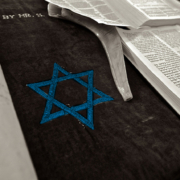A Brief Look Into the Jewish Holiday of Yom Kippur
Yom Kippur is one of the most important Jewish holidays of the year. It is the Day of Atonement, where forgiveness is front and center; not only from God, but from fellow brothers and sisters. The holy day marks the end of the 10 days of repentance, which begins with Rosh Hashanah. Here are some of the main traditions that are a part of the holiday:
Fasting
During Yom Kippur, a fasting period of twenty-five hours is observed. This fast is meant to help develop empathy for those who are truly hungry and it is typical for a charitable donation to be made equivalent to the amount a family would normally have spent on meals that day. In addition to abstaining from food, the Jewish people also forgo intimate relationships and signs of wealth such as jewelry or lavish clothes, in order to humble themselves.
Forgiveness
It is customary in the days and hours leading up to the big day to ask for forgiveness from friends, family, and neighbors so that once Earthly forgiveness is given, followers may ask forgiveness from God. The holiday is meant to be one of cleansing and leaving behind old wrongdoing.
Faith
As a holiday sometimes referred to as the “Sabbath of Sabbaths,” attending religious services is a must. On this holiday few people work, as working on the Sabbath is forbidden. At Yom Kippur services, there are special prayers, songs, and customs. At the end of the service, a ram’s horn is blown to signify the end of the fasting period.
Feast
After a long fast, it is common to have a feast to refresh and rejoice at the cleansing of the body and mind.
For those unfamiliar with the holiday, it is more of a somber holiday than Hanukkah. If you want to share well-wishes, tell them “Blessed Yom Kippur,” or “Have an Easy Fast,” as opposed to “Happy Yom Kippur.”
So, from all of us at Conrey Insurance Brokers & Risk Managers we wish you a Blessed Yom Kippur.

